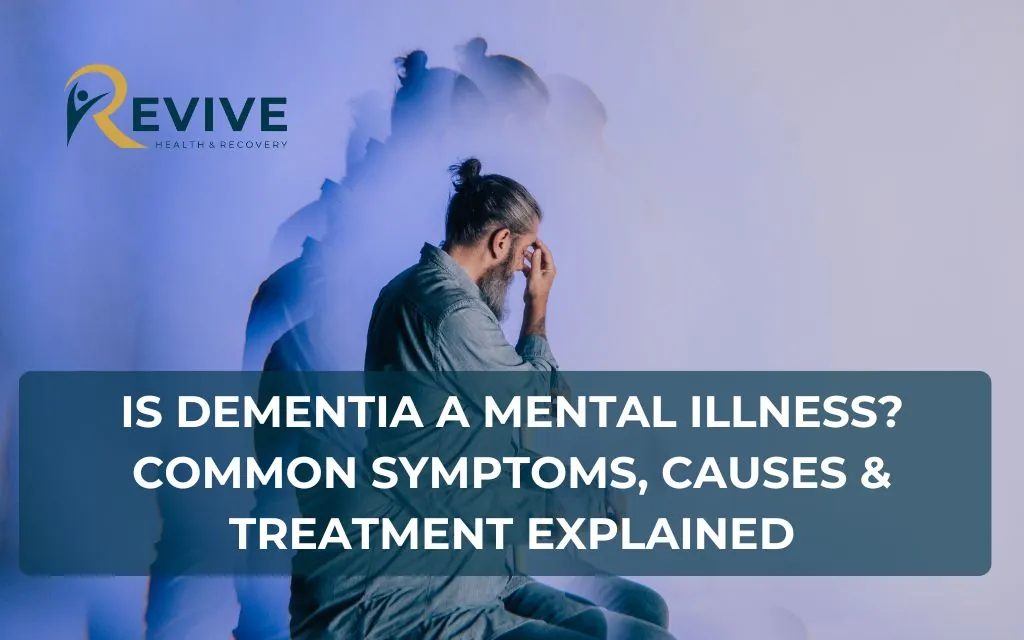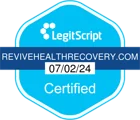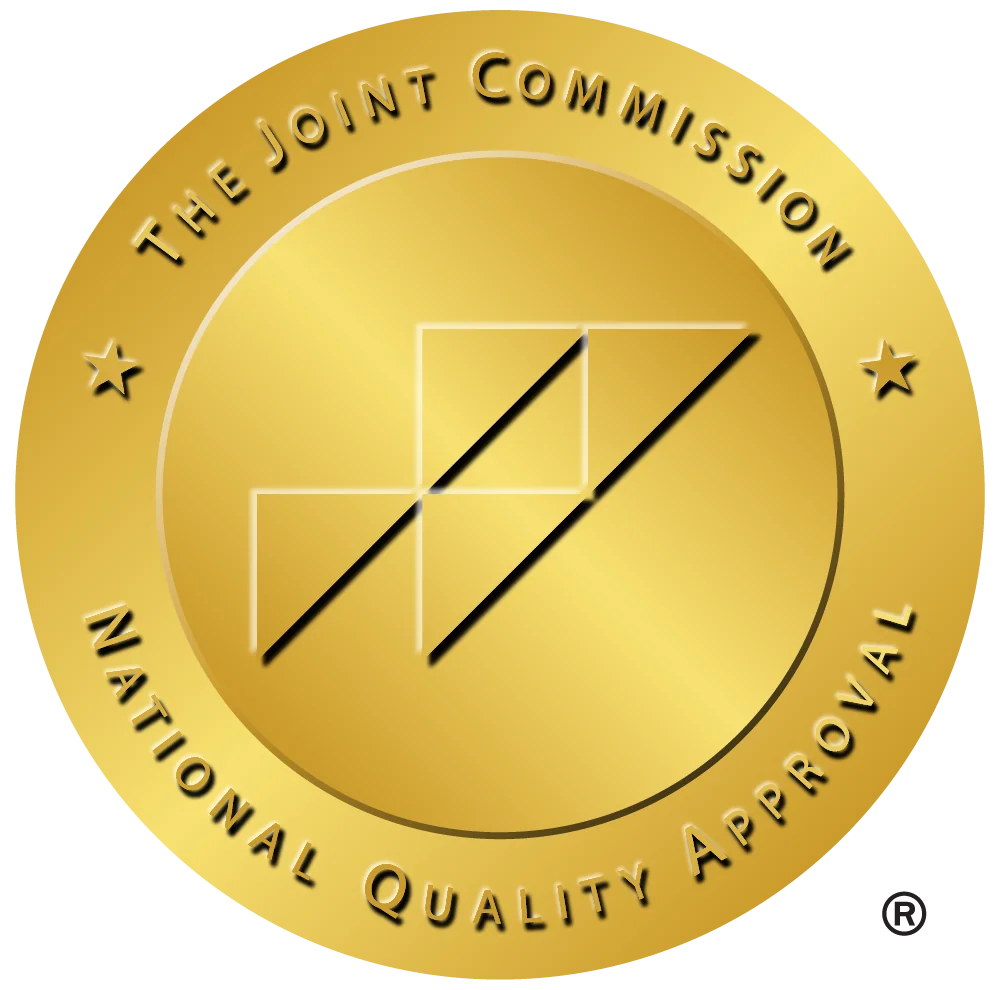Dementia is a complicated condition, and many people wonder, is dementia a mental illness or something entirely different? This question matters a lot to those experiencing dementia and their families. To give the right care and support, it’s important to understand how mental illnesses and neurological disorders, like dementia, differ.
Revive Health Recovery offers caring, specialized services for mental and cognitive health challenges in Denver, Colorado. Dementia affects millions of people worldwide, and understanding how it differs from other mental health topics helps ensure accurate diagnoses and personalized treatments.
This article will explore whether dementia is considered a mental illness, its symptoms, and how it’s treated. By learning more, we can better support individuals facing dementia and their loved ones.
What Is Dementia?
Dementia is not a singular disease but a collection of symptoms caused by damage to the brain’s neurons. This neurological disorder significantly impacts memory, communication, reasoning, and daily functioning.
Dementia as a Neurological Disorder
Dementia primarily stems from changes in the brain’s structure and function. It is classified as a neurological condition rather than a psychiatric one, although the two fields often overlap. Neurodegeneration, the gradual deterioration of brain cells, lies at the heart of dementia. Conditions such as Alzheimer’s disease, vascular dementia, and Lewy body dementia reflect how diverse its underlying causes can be.
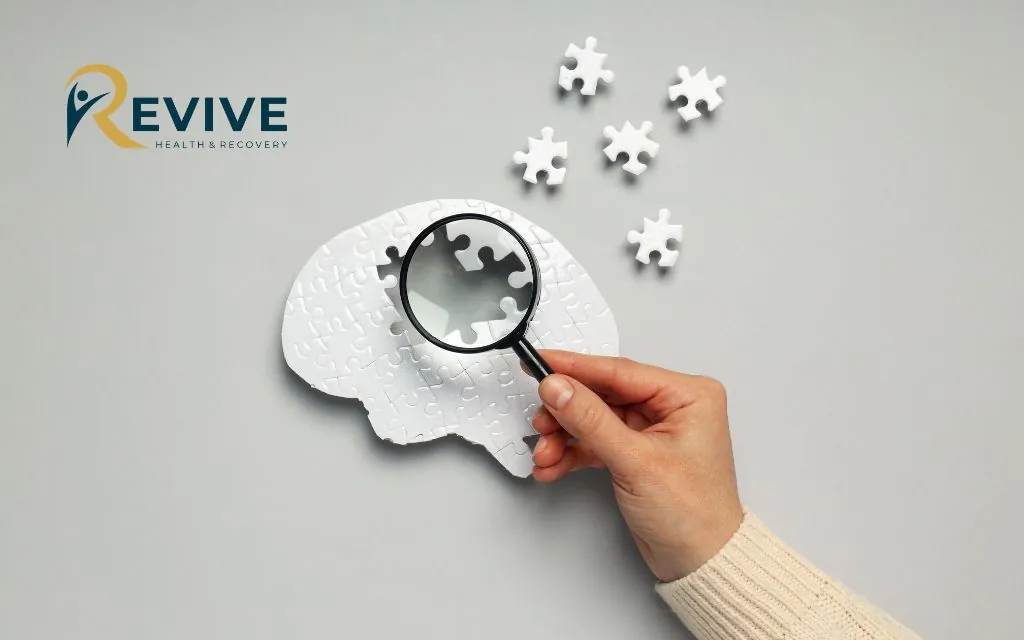
Symptoms and Cognitive Decline
The symptoms of dementia manifest as cognitive decline that goes beyond normal aging. Memory loss is often the first noticeable sign, but other symptoms of dementia include difficulty with problem-solving, language, and judgment.
Key Differences from Psychiatric Conditions
One key distinction is the origin of dysfunction. Mental illnesses, such as generalized anxiety disorder or depression, primarily involve emotional and psychological processes, often without observable structural brain damage. Dementia, however, results from tangible neurological damage, which can be confirmed through imaging and diagnostic tests. This distinction emphasizes why dementia requires distinct treatment strategies.
Types of Dementia
Dementia encompasses several types, each with unique characteristics. Alzheimer’s disease is the most prevalent form, accounting for approximately 60–80% of cases. Vascular dementia results from reduced blood flow to the brain, often following strokes or small vessel diseases. Lewy body dementia is associated with abnormal protein deposits, causing hallucinations and motor symptoms similar to Parkinson’s disease.
Frontotemporal dementia, though less common, affects younger individuals and primarily impacts behavior and language. Understanding the types of dementia is crucial for accurate diagnosis and effective care planning, including services available at Revive Health Recovery in Denver.
Causes of Dementia and Risk Factors
Age-Related Cognitive Decline
Age is the most significant risk factor for dementia. As the brain ages, it becomes more susceptible to neurodegeneration and cognitive decline. While not everyone experiences dementia, aging increases the likelihood of developing symptoms of dementia.
Other Contributing Factors
Beyond age, various other factors contribute to dementia’s onset. Environmental influences, traumatic brain injuries, and certain medications can accelerate cognitive decline. Recognizing these risk factors can aid in early prevention and intervention.
Genetics and Family History
Genetics also play a role. While having a family member with dementia doesn’t guarantee inheritance, certain genes, such as APOE-e4, increase susceptibility. Genetic counseling and testing can provide insights for families at higher risk.
Lifestyle and Health Issues
Lifestyle choices significantly impact cognitive health. Conversely, adopting a brain-healthy lifestyle—including a balanced diet, regular exercise, and mental stimulation—can reduce dementia risk. Programs offered by Revive Health Recovery emphasize holistic approaches to long-term health.
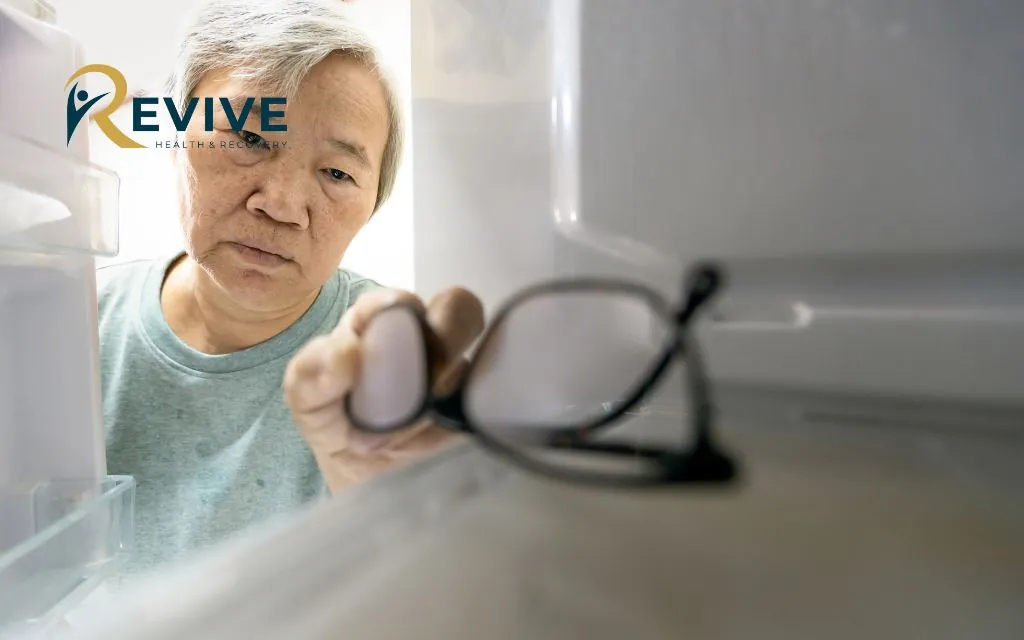
Dementia Diagnosis and Treatment
Diagnostic Methods
Diagnosing dementia requires a comprehensive approach. Physicians evaluate medical history, conduct cognitive tests, and use imaging techniques like MRIs to identify brain abnormalities. Biomarkers and genetic testing further aid in pinpointing specific types of dementia. Accurate dementia diagnosis allows for tailored treatments that address each individual’s needs.
Treatment Approaches
While there is no definitive cure for dementia, treatments focus on managing symptoms and slowing progression. Medications like cholinesterase inhibitors improve cognitive functions in mild-to-moderate stages, while therapies like occupational therapy support daily functioning. Emotional well-being is also prioritized, with services like those at Revive Health Recovery offering support for associated mental health challenges.
Is Dementia a Mental Illness? The Differences
Neurological vs Psychiatric Disorders
The primary distinction lies in the underlying mechanisms. Dementia is a neurological disorder caused by structural changes or damage to the brain, whereas mental illnesses involve disruptions in emotional and psychological well-being. The overlap of symptoms can complicate differentiation, but diagnostic tools help delineate these conditions.
Misconceptions About Mental Health and Dementia
The conflation of dementia with mental illness stems from shared symptoms, such as mood swings and confusion. However, understanding their differences ensures more effective treatment and reduces stigma. Organizations like Revive Health Recovery in Denver actively work to educate communities about these misconceptions, promoting accurate knowledge and empathy.

Support for Those Living with Dementia
Living with dementia presents unique challenges for individuals and their families. The progressive nature of this condition often requires a holistic approach to care, blending medical, emotional, and practical support. Addressing the symptoms of dementia goes beyond treatment—it involves fostering environments that empower individuals to maintain their dignity and quality of life. Support systems, including specialized programs and caregiver education, are critical for creating sustainable strategies to navigate this journey.
In Denver, Colorado, Revive Health Recovery plays a pivotal role in providing tailored support for those affected by dementia. By combining evidence-based therapies with compassionate care, this facility ensures individuals and their families receive the resources and guidance they need to manage the complexities of cognitive decline.
Specialized Programs at Revive Health Recovery in Denver
Revive Health Recovery is renowned for its comprehensive approach to cognitive and mental health challenges, offering specialized programs for individuals with dementia. These programs are designed not only to address the neurological and emotional needs of the individual but also to create a network of support for families and caregivers. By leveraging advanced diagnostic tools, therapeutic interventions, and personalized care plans, Revive Health Recovery sets a benchmark for dementia care in the Denver area.
Tailored Cognitive Therapies
One of the cornerstones of dementia care at Revive Health Recovery is the emphasis on tailored cognitive therapies. These therapies focus on stimulating cognitive function, slowing the progression of symptoms, and enhancing overall mental well-being. Memory exercises, problem-solving activities, and language therapies are customized to match the specific needs and capabilities of each individual.
Additionally, Revive Health Recovery incorporates creative therapies, such as art and music therapy, which have been shown to improve mood and cognitive engagement in those with dementia. These approaches not only alleviate some of the symptoms of dementia but also foster a sense of accomplishment and emotional connection, which are vital for mental health.

Family and Caregiver Education
Caring for a loved one with dementia can be overwhelming, particularly as the condition progresses. Revive Health Recovery recognizes the vital role caregivers play and offers extensive educational resources to empower them. Workshops and one-on-one professional counseling sessions help families understand the symptoms of dementia, navigate challenges, and provide effective support for their loved ones.
Training programs focus on practical strategies for managing behavioral changes, improving communication, and ensuring safety within the home environment. By equipping caregivers with these skills, Revive Health Recovery not only enhances the care provided but also reduces caregiver stress and burnout.
Building a Supportive Environment
Creating a supportive environment is critical for individuals living with dementia. This involves more than just medical care; it requires a holistic approach that considers social connections, emotional well-being, and daily living needs.
Revive Health Recovery fosters this environment through group therapy sessions, where individuals can interact with others facing similar challenges. These sessions help reduce feelings of isolation, which are common among those experiencing cognitive decline. Social engagement activities, like group games and collaborative projects, encourage interaction and build a sense of community.
Beyond its facilities, Revive Health Recovery advocates for dementia-friendly communities in Denver, educating local organizations and individuals about how to support those living with dementia. By promoting awareness and understanding, they ensure a more inclusive and compassionate society where those with dementia can thrive despite their challenges.

Conclusion
Is dementia a mental illness? Dementia is a multifaceted neurological condition that affects millions globally. While its symptoms may overlap with those of mental illnesses, it is distinct in its causes and treatments. By recognizing dementia as a neurological disorder, individuals and their families can seek appropriate care and interventions.
In Denver, Colorado, Revive Health Recovery offers a compassionate, expert approach to addressing cognitive and mental health challenges. By understanding the nuances of dementia, society can foster a more supportive and informed environment for those affected, ensuring they receive the care and dignity they deserve.
